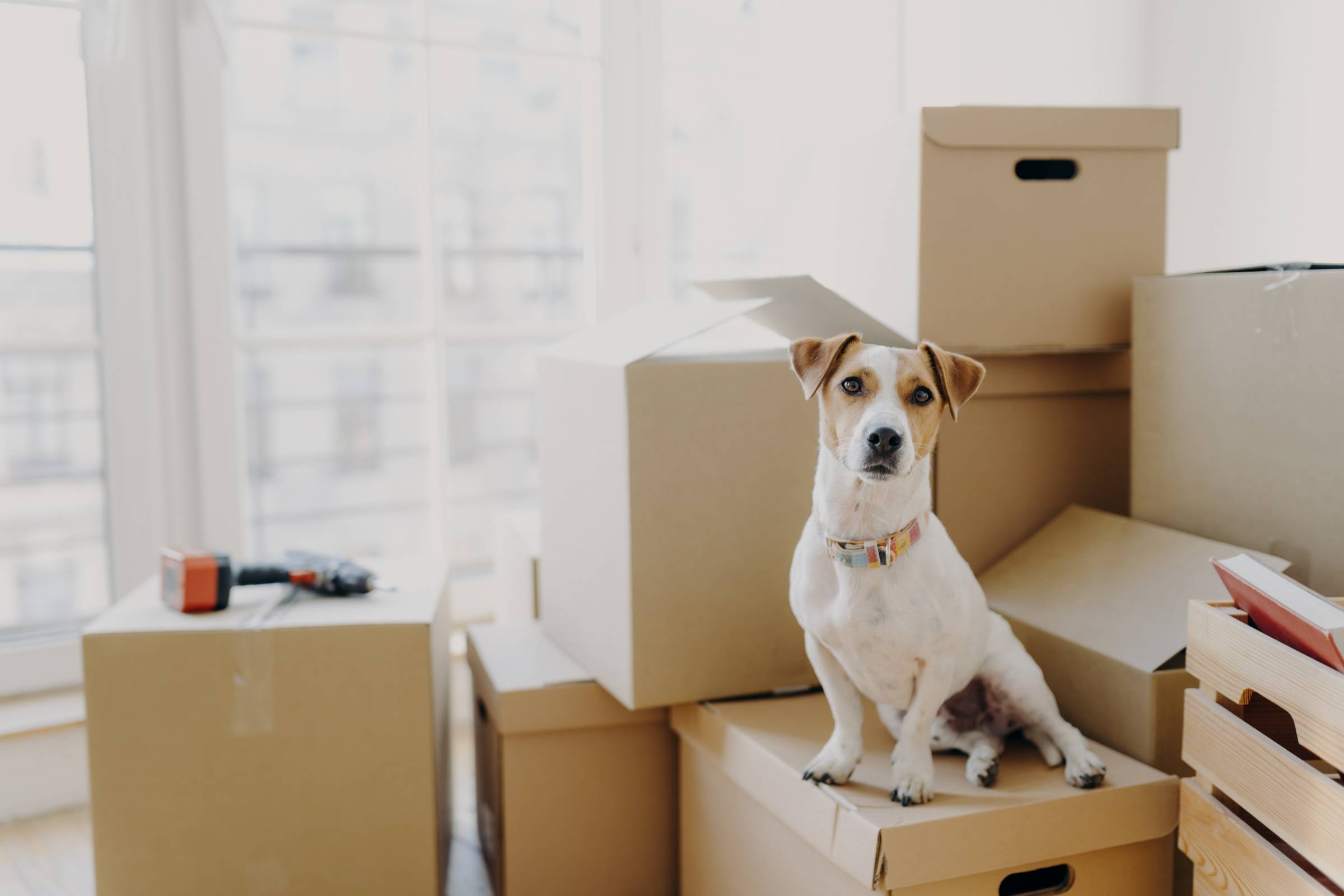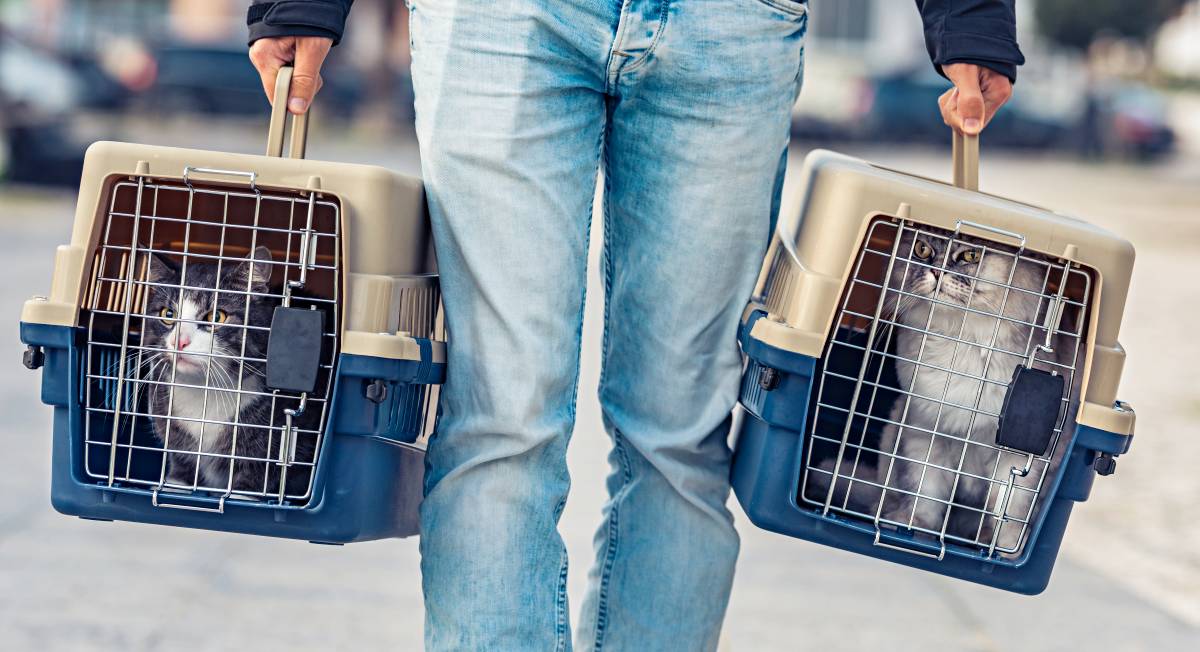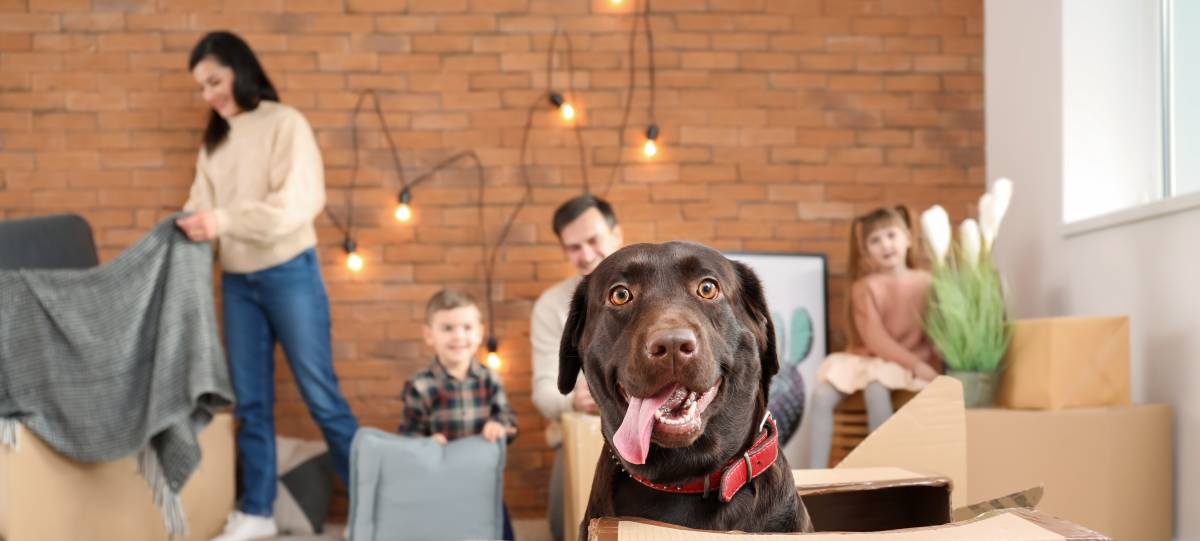
- Home/
- Guides/
- Pet Transport/
- Moving with Pets
Keep it paw-sitive: 11 Tips for moving with pets
Learn the best tips to make moving with pets stress-free for you and your fur babies!
Last Updated on
If you’ve set a date for your move and are ready to call a removals company, you may want to pause and ensure your pets’ needs are accounted for.
Moving with pets is more complicated than packing them in a carrier and making the trip. As with many pet-related things, a successful move with pets in tow requires diligent planning and a lot of commitment.
Don’t know where to start? Keep reading for our tips for moving with pets.
1. Do your research
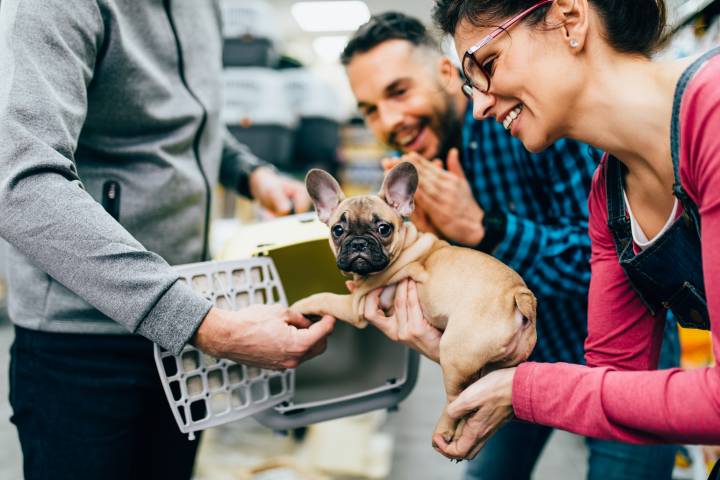
Planning how to move with your pets begins with research and should be done before your move date. Here are a few things you would want to stay on top of:
Local laws on pet transport: Look out for pet travel requirements that might impact your move. Read about local laws that have licensing, vaccination, and other conditions. There are different requirements for moving with large animals than with cats, dogs, and other small animals. You may also need to account for regulations for moving with multiple pets. Research your jurisdiction’s specific requirements to avoid lengthy quarantines for your companion—or worse, getting asked to leave.
Airline policies: If you’re moving across the country with pets, this might involve them boarding a flight. You would want to compare various airlines’ policies and fees. Some animals may be allowed to fly in a carrier with you, while some must be transported in the compartment or shipped as cargo. Also, note that flying your pets in cargo may be impacted by weather conditions. Knowing these policies beforehand will help you choose the best for your pet.
Pet entry requirements: Whether you’re moving overseas with pets, relocating cross-country, or just moving to a different city, you’ll want to know about your destination’s regulations for pet entry. This will help you determine whether you need special carriers or quarantine arrangements.
2. Plan it out and set a schedule
Pets are sensitive to changes in their routine, so you need ample time to craft a plan and get them acclimated to moving. A clearly set timeline will also help you make arrangements.
For example, if you’re moving long-distance with pets and the trip takes a few days, you should look for pet-friendly accommodations and stops. If your move can be completed in a day, it might be worthwhile to consider boarding your pet at daycare to protect them from stress.
3. Set a vet appointment

Ideally, a few weeks before your move date, have your pet checked by a veterinarian for the following:
Ensure their vaccinations are up to date and ask about additional health requirements
Stock up on regular medication
Obtain medical records (including a rabies certificate)
Gather any tips for managing stress for your pet
Get referrals for vets in your destination
4. Purchase supplies
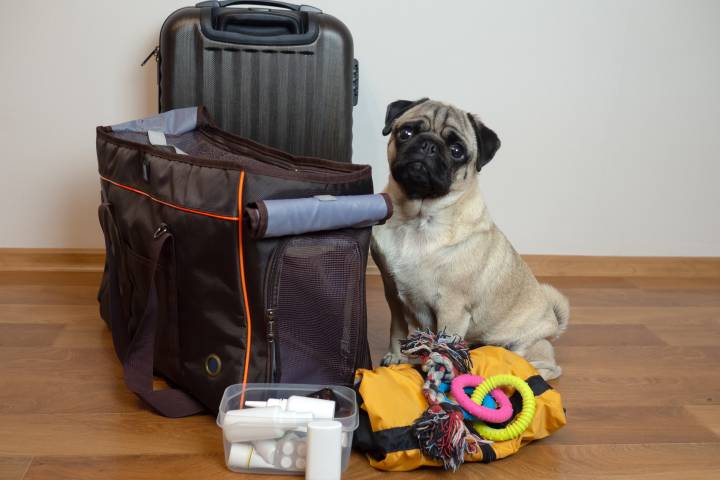
Once you’ve planned your move, you’ll better understand what supplies you need. Apart from boxes and special containers for your belongings, you might need carriers or crates for your pets, depending on the distance. It would help if you also considered things like harnesses, muzzles, cages, etc.
Tip: If you’re moving long distances with pets, prioritise their comfort. Pack a moving bag for your pet and fill it with items they’re familiar with, like feeding and water bowls, treats, a blanket, favourite toys, toilet paper, and disposable bags, so you’re prepared for any emergency.
5. Keep routine changes to a minimum
Pets are creatures of habit, and it would be beneficial for them to get as little disruption in their routines as possible. Although the weeks and days leading up to your move may be busy, remember that it can be stressful for them, too! Maintain your usual routine, such as:
Feeding them at the same times
Taking them on walks
Playing with them
Giving them extra attention
6. Warm them up to a new environment
For short-distance moves, it will do your pet (dogs especially) well if they can get familiar with the new environment. Before you move, you may want to take them on a walk around your new place so they don’t have to adjust all at once.
If this is not possible, do your best to help your pet associate positively with travel. Place them in their carriers and take them on short trips—it will help them disassociate their carriers from vet visits. Reward them with treats and playtime.
7. Introduce them to packing supplies
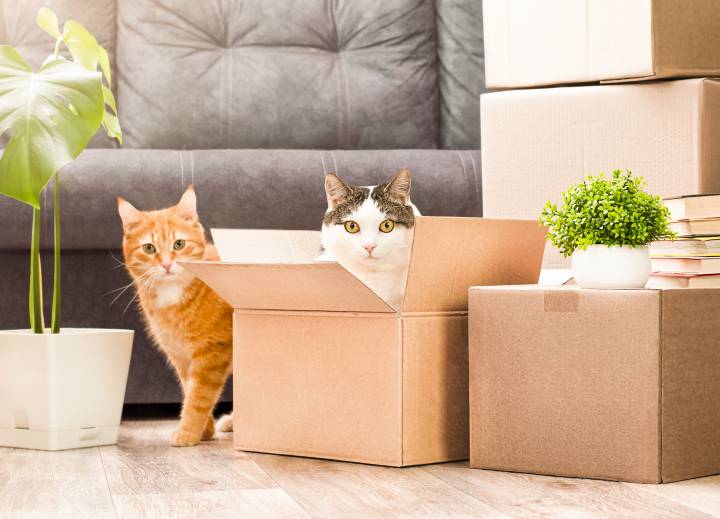
Allow them to be curious about packing supplies and boxes. They might show interest in these new things but will likely ignore them afterwards. You would have fewer disruptions while packing, and your pet won’t be alarmed by the change in your environment.
8. Keep them in a comfortable spot
When you’re ready to jump into the inevitable mess of moving, remember to maintain a calm, comfortable space for your pet to have as much normalcy as possible. You may want to keep your pet in a secluded room where they won’t have to interact with movers or clutter.
9. Take extra caution during transport
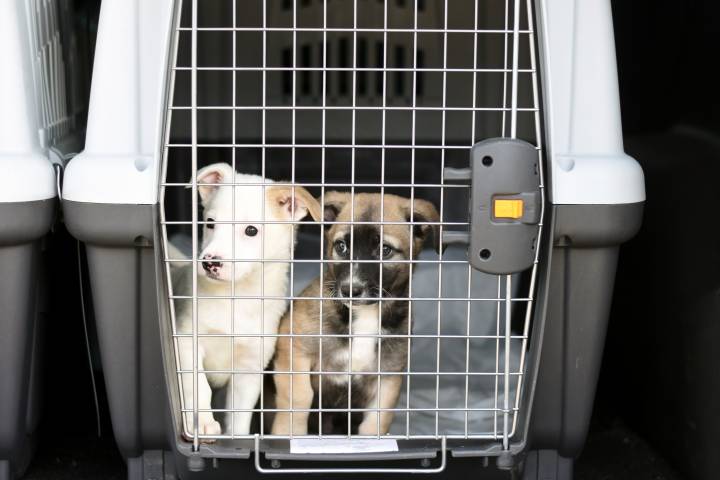
While your pet may usually be well-behaved, they can get easily agitated during transportation. Make sure not to let them out until you’ve reached your destination.
Tip: Make sure your pet’s identification is updated. During the move, keep a collar with their name on them, and have their records on hand.
Ideally, they move with you, but if it’s a long-distance move and you’re handing over transporting your pet, do your best to ensure their carriers are secure and comfortable. Some pets may fare better with a blanket thrown over their carriers to minimise unfamiliar sights and sounds. Other pets—those more familiar with travel—might appreciate roaming freely in your car. However, always keep a carrier close just in case.
10. Pet-proof your new home
Before your pet arrives in your new place, you’ll want to take some pet-proofing precautions, including:
Checking entryways and windows are screened
Ensuring there are no holes in your fences or gates
Checking that they don’t have access to balconies or that railings are of a sufficient height
Clearing any leftover paint, insecticide, cleaners, or other chemicals that might be poisonous
Ensuring you don’t have any toxic plants in your garden or backyard
11. Let them settle in slowly

Getting your pet acclimated to your new home is a process and won’t happen overnight. Let them settle in at their own pace, but help them be as comfortable as possible. Prioritise setting up a space for them with their bed, blanket, and favourite toys. As mentioned earlier, don’t deviate from their routine to maintain normalcy. And finally, be sure to give them lots of love and attention.
A hassle-free move for you and your pet
Fur parents will be all too familiar with anxieties around travelling with their pets. A permanent move is a huge change, so you should be prepared for a few extra steps.
For assistance with the process, consider hiring pet transportation services on Airtasker. You might also find reliable removalists to help you focus on making the experience as comfortable as possible for your pet.
FAQs on moving with pets
Even the most well-behaved pets can get easily agitated by unfamiliar things, and moving entails many changes! It’s safe to say moving can be pretty stressful for pets. As a pet owner, you must make the process as smooth as possible.
Moving with pets is a process and may take some time. Research requirements for your pet’s entry into your destination and guidelines for transporting your pet. Ensure your pet is fit to travel, has updated medical records, and is in good hands during transportation.
The best thing to do is to let them settle in on their own terms. However, make sure your new place is pet-proofed before your pet arrives.
Find pet transport experts, fast
Find a pet transport expert
Related articles

Easy house moving with your cats
Read more
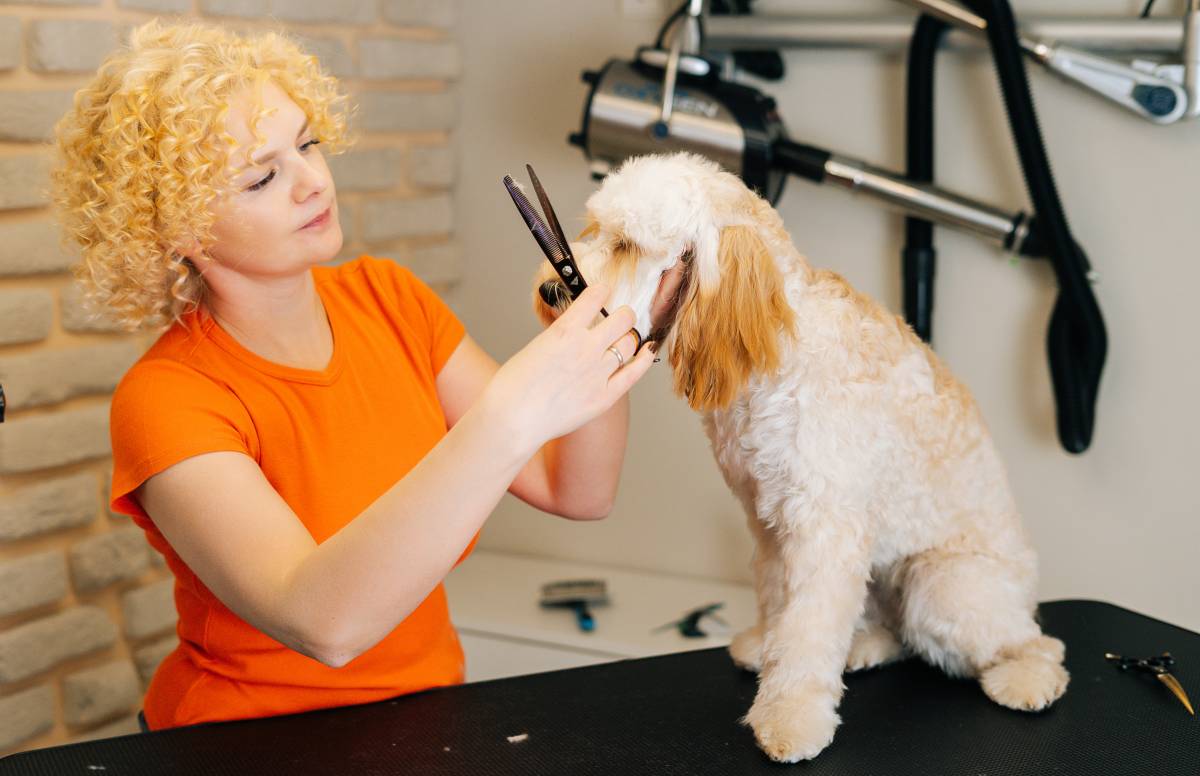
How much does a pet groomer make?
Read more

Best side hustles for veterinarians
Read more
Related price guides
